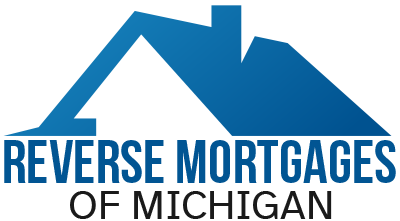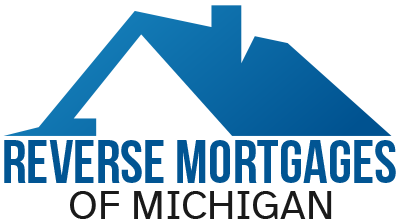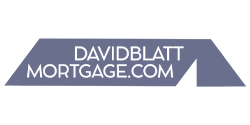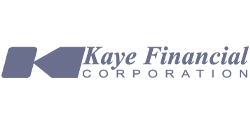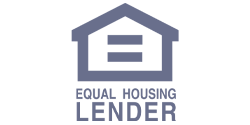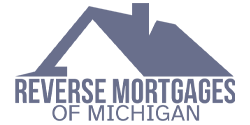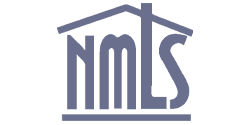No mandatory monthly payments. A great way to improve your retirement. Receive cash for any reason. Line of credit that grows annually. Retain ownership of your home. Loan proceeds are tax free. Insurance premiums for long term care.
- Home
- Reverse Mortgages
Reverse Mortgages
Do you need a reverse mortgage? Find out what reverse mortgages, if you can qualify for one, and much more!
What is a Reverse Mortgage?
Reverse mortgages are gaining traction among Michigan seniors, and for good reason! This innovative loan allows homeowners 62 and older to convert their home equity into cash income, potentially enhancing their retirement lifestyle.
Interested in exploring your options? Contact David Blatt today to discuss your financial goals and see if a reverse mortgage can help you achieve a more secure and comfortable future.
How can a reverse mortgage help you?
We understand that making a major financial decision, especially regarding your home, can be daunting. After all, your home is often your biggest investment and a place filled with cherished memories. That’s why we want to empower you with the knowledge you need to determine if a reverse mortgage is the right fit for you and your family’s unique circumstances.
The following information is designed to be a helpful resource as you explore this option. A reverse mortgage is a unique loan product specifically for homeowners aged 62 and older. It allows you to tap into your home equity, receiving the funds in a variety of ways, including lump sums, monthly payments, or even a line of credit. One of the key benefits is that repayment isn’t required until you no longer live in the home, the last surviving borrower passes away, or the loan terms are no longer met. Examples of these terms often include maintaining the property and keeping up with property taxes and insurance, especially when the loan is an FHA-insured HECM loan.
We hope this information provides a strong foundation for your research. Remember, the best decision is the one that aligns with your individual needs and goals.
Types of Reverse Mortgage Loans
There are two main types of reverse mortgages to consider: the FHA-insured HECM loan (Home Equity Conversion Mortgage) and jumbo or proprietary loans¹ designed for high-value homes.
As reverse mortgage specialists, we’re here to guide you through the process and help you determine if a reverse mortgage aligns with your financial goals. Our commitment is to equip you with all the information you need to make an informed decision that’s best for you and your family. From start to finish, you can expect world-class service and support.
Qualifications for Reverse Mortgage Loans
To qualify for a reverse mortgage loan there are some basic requirements, such as:
- At least one borrower (that will be on title) must be at least 62 years old (unless in the state of Texas, both borrowers must be 62 years old at the time the loan closes).
- The home must be maintained as the primary residence of the borrower/s for at least 6 months out of every year.
- There must be sufficient equity in the home. While there is no specific amount of equity required – as a general rule of thumb – you’d want at least 50% equity in your home since you will need to pay off your existing mortgage with the loan proceeds. The more equity you have the more loan proceeds you will have access to.
- A HECM’s (Home Equity Conversion Mortgage) underwriting standards are unique when compared to traditional mortgage loans. All applicants are subject to a financial assessment to determine their financial capacity and willingness to adhere to the loan obligations, such as paying taxes and insurance.
It’s important to remember that qualification requirements for reverse mortgages can vary slightly between lenders. Factors like your age, financial situation, current interest rates, and home value will all be taken into account. The good news is that you don’t need to own your home outright to qualify for a reverse mortgage.
The amount of cash you can potentially receive is determined by a few key factors: the youngest borrower’s age, the current interest rate projections, the specific loan option you choose, and of course, the appraised value of your home. Generally, older borrowers with higher-value homes will be eligible for more funds compared to younger borrowers with similar homes and interest rates. There are also limits on how much cash you can access in the first year. For more details on these distribution limits, visit our reverse mortgage loan FAQs page.
The Key Features of Reverse Mortgage Loans
Deciding whether a reverse mortgage loan is right for you can be a daunting task, but we are here to hopefully alleviate some confusion and provide you with all the information you need to make the right decision for you and your family.
Some of the key features of the reverse mortgage loan are as follows:
- While you will still need to pay property taxes and insurance and maintain the property, no monthly mortgage payments are required.
- There are multiple options to convert your home’s equity to support your financial goals, such as, receiving monthly payments, receiving a lump sum, or growing a line of credit over time.
- Proceeds you receive from a reverse mortgage loan are typically tax free, however, you will need to consult your tax advisor for tax advice.
- Borrower protection to help reduce the risk of foreclosure. An example of this is a guideline that limits the amount of equity the borrower can access during the first year of the loan. Also, the borrower/s must demonstrate that they’re able to pay property taxes and insurance and maintain the home during the time they have the loan. Furthermore, if a non-borrowing spouse under the age of 62 loses their borrowing spouse or their spouse permanently leaves the home, they will be allowed to remain in the home as long as they comply with the loan terms.
- If the borrower/s choose to access their equity via a line of credit, interest only accrues on funds that are used. Funds that are not used will increase over time at the same rate of your loan. This feature allows for growing the amount of cash you have access to should you need or want to access it later in retirement.
- The FHA HECM Loan is a non-recourse loan. This means that if your home sells for less than the loan balance, your heirs are not liable for the debt. Only the funds received from the sale of the home can be used to repay the loan.
At the time of application, your home mortgage balance does not have to be paid off to qualify. However, the reverse mortgage loan proceeds you receive must be used to pay off the existing mortgage or liens (if there is a mortgage balance owing). You will continue to hold title to your home subject to the mortgage securing the reverse mortgage loan.
Reverse Mortgage Loan Home Eligibility
Homes that are eligible for a reverse mortgage loan include single-family homes, detached homes, townhouses, and two-to-four unit properties that are owner-occupied. Condominiums must be FHA-approved for the HECM loan and some manufactured homes are also eligible. Contact your Reverse Mortgage Loan Originator for more details on manufactured home eligibility.
Will You Have To Repay The Lender if You Outlive The Loan?
If you outlive the loan, you will not have to repay the lender if you have a HECM loan. As long as one of the borrowers on the loan note (or original non-borrowing spouse) lives in the home, continues to pay the taxes and insurance and maintains the home in good condition and complies with the loan terms, you will not need to repay the loan. Once the last surviving borrower passes away (and any non-borrowing spouse), the home is sold or the obligations of the loan are not met, the loan must be repaid.
How Will This Loan Affect My Estate And How Much Will Be Left To My Heirs?
If a HECM, once the last surviving borrower dies, sells your home, or no longer resides there as the primary residence, you or your estate is responsible for the repayment of the money you received from the reverse mortgage loan, plus interest and other fees. Any remaining equity belongs to either you or your heirs. A “non-recourse” clause prevents either you or your estate from being responsible for more than the value of your home when the loan is repaid. If the ending loan balance exceeds the home’s value, the estate (heirs) can sign a deed in lieu of foreclosure releasing the property or, pay 95% of the home’s appraised value, less customary closing costs & real estate commissions.
Should I Use An Estate Planning Service To Find A Reverse Mortgage Loan?
HUD advises against using any service that charges a fee (except required HECM counseling) or any service that requests a lender referral fee to obtain a reverse mortgage loan. HUD provides this information free of charge and can direct you to HUD-approved housing agencies that offer approved reverse mortgage loan counseling or additional services that are free or have a minimal cost.
There is typically a reverse mortgage loan (HECM) counseling fee that ranges from $125 – $150. If the borrower cannot afford this fee, some counseling agencies will waive the fee for qualified applicants. You can find a HUD-approved housing counseling agency near you by calling 1-800-569-4287 toll free.
Options For Receiving Loan Proceeds
Adjustable interest rate reverse mortgage loan payments can be received in one of five ways:
- Tenure: equal monthly payments
- Term: equal monthly payments for a fixed period of months as decided by the borrower
- Line of Credit: payments made in installments or at various times and in amounts dictated by the borrower(s)
- Modified Tenure: monthly payments with a line of credit
- Modified Term: monthly payments for a fixed period of months with a line of credit²
Licensed to do business in the State of Michigan Arizona California Colorado Florida Tennessee
Secure an accurate Reverse Mortgage quote
No commitment required.
Any information collected from this form will not be sold, shared, or rented to others. At any point, feel free to e-mail or call us regarding any questions you may have. Did you notice our website is secure and encrypted? Our SSL uses SHA-2 and 2048-bit encryption that’s the strongest encryption on the market today.
Customer Support
Resources
and case studies
Gain valuable insights from my research and case studies on reverse mortgages and home loans.
01
A Home Equity Conversion for Purchase
A Home Equity Conversion for Purchase loan or H4P, is a safe, FHA federally insured loan program that helps seniors purchase a home more suited to their retirement lifestyle.
02
Who Qualifies for A Reverse Mortgage?
You're considering a reverse mortgage to assist with your retirement finances, but are you eligible? Find out how to qualify by watching this video.
03
Why Should Seniors Consider a Reverse Mortgage?
By arranging a reverse mortgage ahead of time, before any emergencies occur, you'll have extra cash available when needed.
